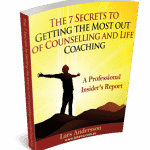Depression – a few thoughts
This is the August 2012 issue of the Integrating Awareness Newsletter. The theme for this issue is Depression, with articles about:
- Depression; its causes, symptoms, and treatments, including scientific research findings;
- Anti-depressant medication; a critical perspective on the most common “solution”;
- Psychotherapy; a safe and effective treatment for depression.
Depression
Over the course of a lifetime almost one in five people will at some time be diagnosed with depression, with episodes lasting on average around three to four months. The signs and symptoms of depression, and how severe and persistent they are, vary from individual to individual. They could be any combination of; persistent sadness, feeling worthless or hopeless or helpless, concentration problems, decision paralysis, inability to enjoy anything at all, self-hatred, fatigue, lowered sex drive, lack of appetite or overeating, avoiding contact with people, abandoning hobbies, and many other.
Depression is often referred to – perhaps in particular by the pharmaceutical industry? – as being caused by a chemical imbalance, but this is far from the only perspective on how depression occurs. Whilst a chemical imbalance may very well be present, this does not necessarily indicate that it is the actual cause of the condition, and some health professionals argue that the causes for depression are as varied as the individuals that suffer from depression. Nevertheless, a model that has found great appeal is the ‘biopsychosocial’ model for depression, which suggests that the cause of depression is a combination of biological, psychological and social factors.
A lot of intriguing research outcomes are generated around depression and its causes too. For example, a recent study found that hamsters who where exposed to artificial light at night showed evidence of depression after four weeks. The researchers believe that this may indicate a contributing factor to the increased occurrence of depression in humans in the last 50 years, when exposure to television and computer screens has become so much part of people’s evening/night time activity. Other studies have found a connection between fast food and depression. One study found that people who frequently eat fast foods were 50% more likely to become depressed, and that even eating small quantities of fast foods was linked to a significantly higher chance of developing depression.
Research has also identified some very interesting connections between depression and other mental illnesses. For example a study published only last month found that people with a history of suffering from depressive symptoms were more likely to develop Alzheimer’s disease and vascular dementia later in life.
Regardless of severity of symptoms, depression can usually be successfully treated, and the sooner the sufferer gets treatment the better the chance of recovery. Most people who think the may be suffering from depression start out with seeing their GP, and are likely to be prescribed anti-depressant medication. Anti-depressants do have their place, but they come with side effects, of course, and they may not be quite as effective as we have been led to believe. To read more on this subject, read the article “Anti-depressants for depression? A critical question” below. Another approach to dealing with depression is psychotherapy, which has no side effects and actually has been found by a large number of research studies, meta-analyses and review articles to be effective in the treatment of depression. Read more about depression and psychotherapy in the article “Treating depression – a case for psychotherapy” below!
Finally, let me offer to you a deeper perspective on depression, one that I have found to be the only meaningful perspective for many of the people that have come to see me for help with their depression. These words are quoted from Jeff Foster, one of the most inspiring writers of our time;
“It’s interesting that the word “depressed” is spoken phonetically as “deep rest”. We can view depression not as a mental illness, but on a deeper level, as a profound (and very misunderstood) state of deep rest, entered into when we are completely exhausted by the weight of our own (false) story of ourselves. It is an unconscious loss of interest in the second-hand – a longing to ‘die’ to the false. This longing needs to be honoured, not medicated, meditated or analysed away.”
Articles
Depression – causes, symptoms, treatments
This article contains more detailed information about depression than what has been presented above, as well as references to scientific research on the subject. Read the article here…
Anti-depressants for depression? A critical question.
The first-line medical treatment for people meeting current diagnostic criteria for major depressive disorder is a prescription of anti-depressant medication, but anti-depressants come with a vast range of side effects, some of which are very serious. A lot of research is also beginning to show evidence that anti-depressants are actually not very effective, and that they may possibly be doing more harm than good. Read more…
Treating depression – a case for psychotherapy
That psychotherapy is an effective treatment for depression is beyond doubt. A vast number of research studies, meta-analyses (combining data from several separate research projects) and review articles have demonstrated the importance and effectiveness of psychotherapy and psychological interventions in the treatment of depression. Read more…
I hope you found something that interested you in this issue of the Integrating Awareness Newsletter!
Until the next time,
Be well and enjoy Being!
Lars Andersson

